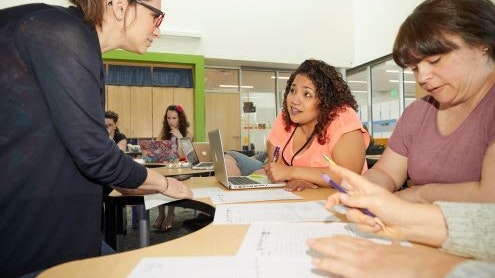Homepage
•
Learning Library
•
Blog
•
4 Benefits of an Active Professional Learning Community
Expand breadcrumbs
Expand breadcrumbs
- Learning Library
- Blog
- 4 Benefits of an Active Professional Learning Community
- Homepage
- •
- Learning Library
- •
- Blog
- •
- 4 Benefits of an Active Professional Learning Community
4 Benefits of an Active Professional Learning Community
By Jennifer Serviss
May 13, 2022








